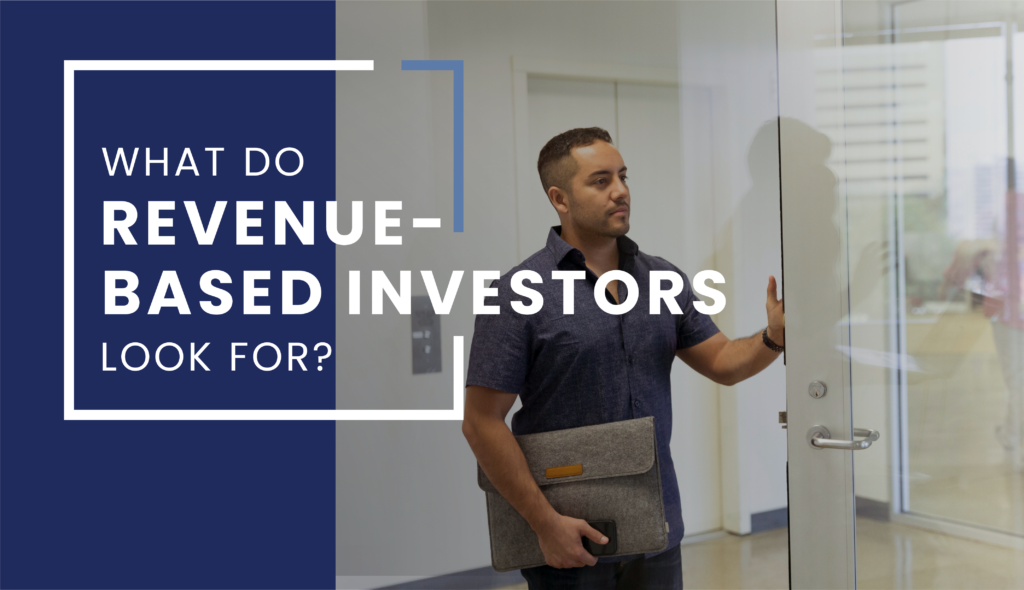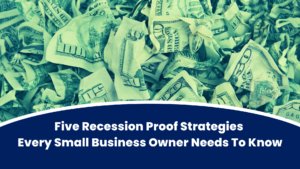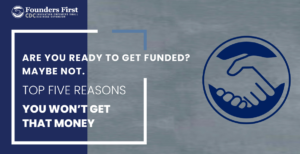With over 30 investment companies offering revenue-based financing, where should you start if you’re in the market for RBF funding? We take a look at some of the players.
By Kim Folsom
In this 4-part series, we’ll take a look at the ends and outs of revenue-based investing, including what it is, an overview of some RBF investment firms, successful case studies, and how to prepare to apply for RBF if you think it’s a good fit for your company.
Last time, I mentioned how revenue-based financing (RBF), also known as revenue-based investing (RBI), can make a lot of sense for some companies—particularly if you don’t want to dilute an equity ownership stake. Today, I’m going to talk about some of the firms who do revenue-based funding and what they look for.
TechCrunch recently identified 32 U.S.-based firms that actively invest via revenue-based financing. They represent $4.31 billion in capital—so the market is growing but still a lot smaller than venture capital. B2B software receives the most RBF funding, but many service-based businesses and industries are increasing their RBF activity, including food and beverage, consumer products, fashion, and healthcare.
So, if you think RBF might be a good option for your company, where should you start? Recently, during a panel, I spoke with reps from several firms that do RBF funding. They have a lot of things in common, and yet each offers services that are a little different. Here’s a view of the landscape.
Decathlon Capital Partners
- Number of investments in portfolio: They have funded 170 companies over the last decade at about 35-40 companies annually
- Average deal size: $2 million to $3 million, but range is $1 million to $10 million
- Industry makeup: 35% SaaS, followed by healthcare, food, beverage, and alcohol, and consumer/direct to consumer
- Intangibles: Decathlon is the largest revenue-based financier in the U.S. Co-Founder and Managing Partner Wayne Cantwell said they look at several thousand companies each year. Over 34% of the firm’s investments are impact-qualified companies, and 16-17% are led by people of color
- Website: https://decathloncapital.com
Lighter Capital
- Number of investments in portfolio: 150 deals done in 2019, according to BJ Lackland, Lighter’s CEO from 2012-2019, and often they do two loans per company
- Average deal size: $370,000, and up to $3 million
- Industry makeup: Software and related businesses with 75% of its portfolio being SaaS
- They look for monthly recurring revenue averaging of at least $15,000 and gross margins of at least 50%.
- Monthly payments are usually between 2% and 8% of revenue, never over 10%, and repayment caps are 1.35x to 2x.
- Intangibles: Lighter’s team has years of experience funding and scaling businesses and their management group and community offer help and support.
- Website: https://www.lightercapital.com
Novel Growth Partners
- Number of investments in portfolio: About 40 across 26 companies—and about 40% of their companies also have some venture capital funding
- Average company size: Minimum of $500,000 in annual revenues over the last 12 months—and up to $5 million
- Average deal size: $300,000
- Industry makeup: Focuses on B2B software, especially SaaS
- Intangibles: Co-Founder and Managing Partner Keith Harrington said they have a revenue acceleration platform, which is a very structured system they use to help CEOs accelerate their growth curve
- Website: www.NovelGP.com
RevUp Capital
- Number of investments in portfolio: 30
- Average company size: $1 million to $10 million in revenue
- Average deal size: $250,000 to $500,000
- Industry makeup: 40% niche SAAS, 30% ecommerce, and then any other category—they like revenue no matter what container it comes in, Co-Founder and Managing Partner Allan Tear said.
- Tear said they are determined to be an alternative to the “unicorn or bust” myth of financing and give founders more options to create success on their terms
- Intangibles: Optional set of services around a growth platform with a dedicated team of digital marketing and sales op folks that work with funded companies for up to 12 months after they make an investment.
- Website: https://decathloncapital.com
Founders First Capital Partners
- Number of investments per year: Our platform is built to fund 50 companies per year (I founded Founders First Capital Partners in 2015)
- Number of companies in portfolio: We’ve supported over 400 diverse, founder-led companies
- Average company size: $500,000 to $5 million in revenue
- Average deal size: $250,000, though up to $1 million
- Industry makeup: Service based, including light manufacturing—and profitable
- Intangibles: We specifically try to fill the gap for underfunded, diverse founders, who may not have the personal assets to access traditional debt, and 70% companies funded are in underserved communities. We also offer post-funding advisory support.
- Website: https://foundersfirstcapitalpartners.com
With over 30 investment firms doing revenue-based financing, you have lots of options. Shop around, look at the intangibles, see which one is the best fit for you if you’re in the market for this kind of funding.
I will admit, I’m a fan of revenue-based financing. It’s part of the reason I founded Founders First Capital. After selling six different companies as a serial entrepreneur, I realized I wanted to retain more control over our equity and exits. Maybe you feel the same way. If so, give us a look.
Kim Folsom is the founder and CEO of Founders First Capital Partners, which has helped accelerate the success of hundreds of small, service-based, business-to-business companies since 2015. Visit our website to learn more.




